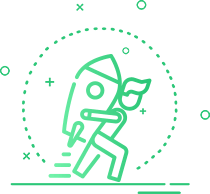Off-Page SEO & Link Building
Off-Page SEO Trends
White Hat, Black Hat, and Grey Hat SEO
White Hat
Black Hat
Grey Hat
E-A-T

Expertise
Is the information accurate? Should this writer or brand write about this topic?

Authoritativeness
Is the author well-respected in their field? Is the brand widely recognized in the industry? Is the content referred to elsewhere on the web by other authoritative websites, brands, and people?

Trustworthiness
Do the brand and the writer have a good reputation, and is the content reliable?
Why Building Links Is A Necessity

Brand Mentions
Brand mentions are references to another brand’s service or products. They can come in the form of reviews or blog articles and impact the reputation of a brand. By building links, the frequency of your brand mentions increases, generating greater awareness and enhancing your off-page SEO, especially if the links come from trustworthy sites.

Exposure
Building links exposes your brand in two ways – awareness from other brands and awareness through SERPs. Proper link building can boost your rankings, thus improving exposure on SERPs.


Increases Ranking
The more credible external websites link back to yours, the better your E-A-T score. With a strong E-A-T score, Google perceives your website to be of high quality, boosting your overall rankings.

Perpetual Conversion Potential
Gaining conversions is imperative for all businesses, but consistent conversions are what keep a business successful. Link building helps with perpetual conversions, particularly if renowned, trustworthy brands continue to link to you when building content.
Link Building Terms You Should Be Familiar About
Backlinks
Also known as inbound links or incoming links, backlinks are links from one website to another. They are crucial for SEO as search engines like Google use them as indicators of the authority and relevance of a webpage.
Link Authority
Link authority refers to the quality and trustworthiness of a webpage that is linking to another webpage. Links from high-authority websites are considered more valuable and can positively impact the search engine rankings of the linked page.
Link Relevance
Link relevance refers to how closely related the content of the linking webpage is to the content of the linked webpage. Links from relevant sources are more valuable for SEO as they indicate to search engines that the linked content is likely to be useful and authoritative on the topic.
Page Relevance
Page relevance refers to the overall relevance of a webpage to a particular search query or topic. Search engines evaluate the relevance of a webpage based on factors such as its content, keywords, and user engagement metrics.
Anchor Text
Anchor text is the clickable text in a hyperlink. It provides context about the content of the linked page to both users and search engines. Optimizing anchor text with relevant keywords can help improve the search engine rankings of the linked page for those keywords.
Link Quality
Link quality refers to the overall trustworthiness and authority of a link. High-quality links come from reputable websites that have relevant content and a strong reputation in their industry. These links have a positive impact on SEO, while low-quality or spammy links can harm rankings.
Link Spamming
Link spamming is the practice of artificially creating or manipulating links to a webpage in order to manipulate search engine rankings. This includes tactics such as buying links, participating in link schemes, or using automated programs to generate links. Link spamming is against search engine guidelines and can result in penalties.
Dofollow/Nofollow
Dofollow and nofollow are HTML attributes that can be added to a hyperlink to control how search engines crawl and index the linked page. Dofollow links allow search engines to follow the link and pass authority to the linked page, while nofollow links instruct search engines not to follow the link or pass authority.
NAP
NAP stands for Name, Address, and Phone Number. It is important for local SEO as search engines use this information to verify the legitimacy and relevance of a business. Consistent NAP information across the web helps improve local search rankings and visibility.
